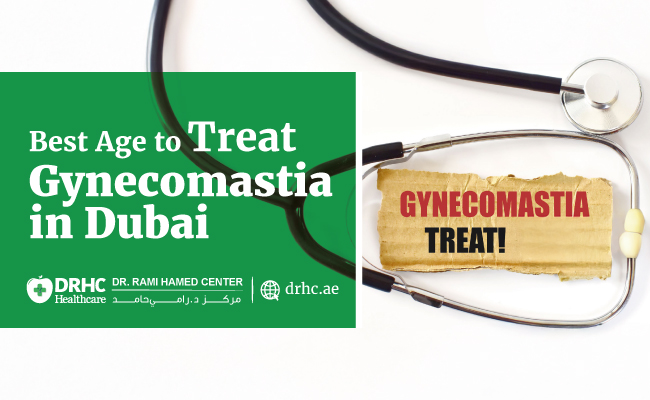
At Dr. Rami Hamed Center (DRHC Dubai), we offer advanced and minimally invasive treatments for anorectal conditions, including FiLaC (Fistula Laser Closure) — a revolutionary procedure for treating anal fistulas. If you've been recommended FiLaC surgery, it's natural to feel uncertain or curious about what to expect. This step-by-step guide will walk you through every stage of the procedure, from consultation to recovery.
What is FiLaC Surgery?
FiLaC is a minimally invasive laser procedure used to close anal fistulas without cutting through the sphincter muscle. It uses a radial-emitting laser fiber to precisely obliterate the fistula tract, promoting closure while minimizing damage to surrounding tissue. The main goal is to eliminate the fistula and preserve normal continence.
Step-by-Step: What to Expect During FiLaC Fistula Surgery
1. Initial Consultation and Diagnosis
Your journey begins with a detailed consultation with a colorectal surgeon at DRHC Dubai. This includes:
- Review of symptoms and medical history.
- Physical examination.
- Imaging studies such as MRI fistulogram or endorectal ultrasound to map the fistula tract.
Once the diagnosis is confirmed, your surgeon will discuss whether you are a suitable candidate for FiLaC.
2. Preoperative Preparation
Before the surgery:
- Bowel prep: A mild laxative or enema may be recommended to clear the rectum.
- Fasting: You’ll need to fast for about 6–8 hours before the procedure.
- Medical evaluation: Blood tests and anesthesia assessment may be required to ensure you're fit for surgery.
3. Admission and Anesthesia
- You’ll arrive at the hospital on the day of surgery.
- General or spinal anesthesia is typically administered to ensure comfort throughout the procedure.
- The entire surgery usually lasts 30 to 60 minutes.
4. The FiLaC Procedure
Here’s what happens during the actual surgery:
- Identification of the fistula tract: A probe is gently inserted to map the full length of the fistula.
- Debridement and cleaning: The tract is cleaned of infected tissue or debris.
- Laser fiber insertion: A flexible radial laser fiber (1470 nm wavelength) is introduced into the fistula tract.
- Laser activation: The laser is activated as the fiber is slowly withdrawn, delivering precise energy that:
- Destroys the fistula tract lining.
- Promotes collapse and sealing of the tract.
- Closure of internal opening (if needed): Depending on the complexity, the internal opening may be sutured or sealed with biological glue.

5. Postoperative Recovery
- You’ll be monitored in a recovery room until the effects of anesthesia wear off.
- Most patients are discharged the same day or after an overnight stay.
- Mild discomfort or drainage is common but manageable with medications.
6. At-Home Care Instructions
Aftercare is crucial for optimal healing. Your surgeon will provide:
- Pain relief: Prescribed medications to manage postoperative pain.
- Hygiene: Regular sitz baths (warm water soaks) to keep the area clean.
-
Dietary advice: A high-fiber diet and adequate fluids to avoid constipation.
- Activity limitations: Avoid heavy lifting or strenuous activity for at least a week.
7. Follow-Up Appointments
You'll return to DRHC Dubai for scheduled follow-ups to:
- Assess healing of the fistula tract.
- Monitor for any signs of recurrence or infection.
- Ensure normal bowel control is maintained.
Our Related Blogs:
- How VAAFT Reduces Recurrence in Complex Anal Fistulas
- What Makes VAAFT a Sphincter-Saving Procedure?
Benefits of FiLaC Surgery at DRHC Dubai
- Minimally invasive technique
- Preservation of anal sphincter function
- Minimal postoperative pain
- Faster return to daily activities
- Low risk of incontinence
- High success rates, especially in simple fistulas
Who is a Candidate for FiLaC?
FiLaC is ideal for patients with:
- Low or high transsphincteric fistulas
- Recurrent or complex fistulas
- Patients seeking a sphincter-sparing approach
Your eligibility will be confirmed through detailed imaging and clinical assessment by our colorectal specialists.
Potential Risks and Complications
While FiLaC is generally safe, like all surgical procedures, it carries some risks:
- Infection
- Recurrence of fistula
- Incomplete healing
- Temporary discharge or discomfort
However, under expert care at DRHC Dubai, the risk of complications is significantly minimized.
Final Thoughts
FiLaC laser surgery offers a safe, effective, and modern solution for treating anal fistulas with minimal discomfort and downtime. At DRHC Dubai, our experienced colorectal surgeons and advanced surgical technology ensure the best possible outcomes for our patients.
If you are dealing with a persistent anal fistula, contact us today to schedule a consultation and find out if FiLaC surgery is the right option for you.
📞 Call Us: +97142798200
📍 Visit Us: Dr Rami Hamed Center, Dubai HealthcareCity
🌐 Website: www.drhc.ae
Topic: General Surgery




.webp)




Leave a comment